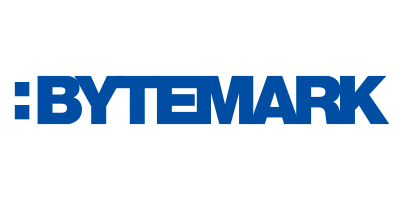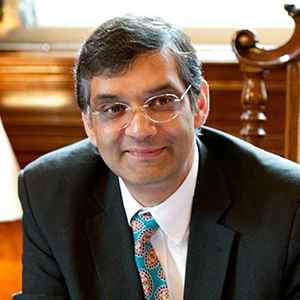
Is my data valuable?
Rashik Parmar
Data is being referred to as the new natural resource. Like with the gold rush, all types of organisations are trying to turn data into value. Stories of how millions are being paid for data are starting to become folklore. However, little is understood about the how to understand the value of data or how to turn data into a valuable asset. In this talk Rashik will share insights into some of the ways data can be turned into value and some of the traps to be avoided.
Rashik is the leader of the European and Asia Pacific Cloud Advisor team, an IBM Distinguished Engineer and previously President of IBM's Academy of Technology. During his thirty one years of practical experience in IBM, he has worked for financial, retail and manufacturing clients on IT transformation projects of all sizes. Overall, he specialises in ensuring the technical success of complex IT projects that transform business models. He currently advising clients on their cloud innovation roadmap from a technology and business perspective. Some of his work is summarised in the HBR Article he co-authored “New Patterns for Innovation” – Jan-Feb 2014.
Rashik was appointed to the Leeds City Region Local Enterprise Partnership Board and chairs the business communications group. He is helping develop the innovation strategies to accelerate growth of this £55bn marketplace. Rashik is also IBM’s Partnership Executive for Imperial College – London. He is also an Adjunct Professor for Department of Innovation and Entrepreneurship at the Imperial College Business School and Visiting Professor to the Intelligent Systems and Networks Group at the Department of Electrical & Electronic Engineering.
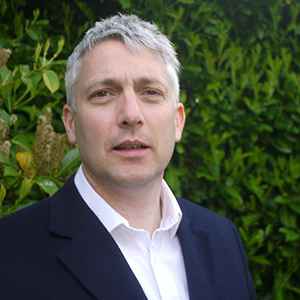
Smart Cities in Action
Paul Connell
Open Data - Open Innovation - Smart/Future/Data Cities - what does this mean for one of the birthplaces of the Industrial Revolution - Yorkshire? ODI Leeds (City Region) is a Node of the Open Data Institute which opened for business in May 2014 to catalyse open data for the benefit of everyone. So what is Open Data? What is the ODI? What is a Node? What has ODI Leeds been doing? Paul Connell - Founder of ODI Leeds will tell the story of the last 2 years and show us what has been achieved so far and plans and thoughts for the future.
Paul Connell runs his own Innovation company, Halcyon Innovation, in Leeds and founded ODI Leeds in November 2013. Trained at Lancaster University & Imperial College he has a 20 year background in Environment & Energy which has developed in the last five to projects that cross-cut with Digital & Design thinking, culminating with his recent work in Digital Urban Futures, Smart & Sustainable Cities and Energy at a City Scale.
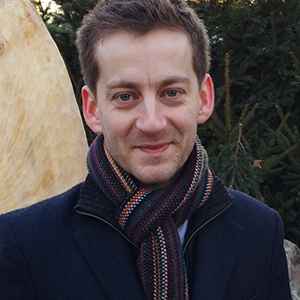
Inspiring ways of using local data.
Tom Rees
A discussion which introduces the Calderdale Open data portal and demonstrates some interesting uses of local data and open data projects that the portal can inspire.
Tom Rees is the founder of DataPress, a software startup for publishing and sharing open data. DataPress was also responsible for building the London Data Store
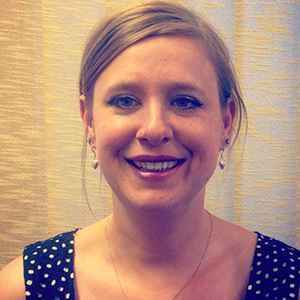
Calderdale Council Open Data Platform Launch.
Michelle Veasey
Introducing the Open Data platform for Calderdale Council, with a short Q&A.
Michelle Veasey is the Digital & Innovation Programme Manager for Calderdale. Responsible for coordinating the digital strategy and driving innovation through; public sector collaboration and business engagement. Born and bred in Calderdale, Michelle draws on her experience of working in public and private sector to leverage the opportunity that digital technology presents for business growth and improving the lives of citizens.
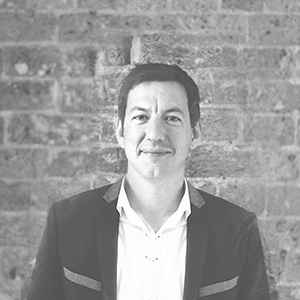
Mapping cities against their social network.
Alex Craven
The talk will focus on innovative research being done by the Universities of Oxford, Strathclyde, Leeds and Bloom Agency. The work is taking Twitter data and removing noise to reveal subtle patterns which show how individual communities are connected together across cities in the UK. This data is available in real time, helping city leaders understand how a city is responding to external influence and activities. Initial findings from the work have identified the communities who are at the most cohesive in a city and those who face the most risk of being isolated in both physical and virtual senses. This work will transform the way that councils measure and plan for the future and provide a living lab through which we can measure, analyse and understand the impact that smart city strategies have on their citizens.
With more than 15 years’ experience in marketing and strategy development, Alex was voted one of the UK’s most influential people in digital by The Drum magazine. As one of Bloom’s founders, Alex explores the ever changing technological landscape to build and lead teams that thrive on turning that change into new and exciting opportunities for our clients. As a specialist in ecommerce digital marketing campaign management, social media, search, web design and development, he’s worked with major brands such as Emirates, Sky, itv, SIG, ADT, University of Oxford, Goal.com and Hitachi.

Examples of using Open Data in Yorkshire
Tom Forth
I use open data to power new products and challenge strongly-held views. I'll share how we're doing both in Yorkshire and around the world. We've built products to make bin collections more efficient, fill empty properties, improve public transport, and build more and better homes. We're also using open data to argue for public policies that help the North of England and the whole of the UK to innovate and grow and have been featured on Radio 4, CityMetric, and BBC Scotland among others.
Tom Forth is founder of Leeds-based software and data consultancy imactivate. He is also an associate at ODILeeds and a recent finalist in Nesta's opendata challenge series.
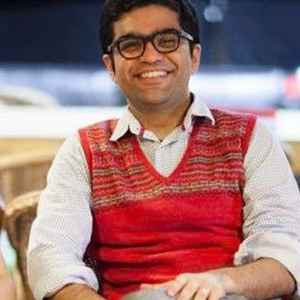
How we're creating an Age Friendly Smart City
Abhay Adhikari
With the global race on to develop smart cities, let's take a moment to ask ourselves the key question - how do we create a smart city that puts people first? This is exactly what we did at the start of the Age Friendly Smart City project in Leeds. Several months into the project, we've learnt a lot and launched a few pilot projects in some very surprising places. In this talk I'll share insights, examples and outcomes.
Abhay Adhikari (Phd) works globally with private and public sector organisations to develop digital engagement and innovation projects. His Digital Identity workshop series has been commissioned by organisations such as The Guardian (UK), Nordiska Museet (Sweden) and Asian Paints (India). He is currently working with Leeds City Council (UK) to develop and implement an Age Friendly Smart City strategy. Abhay has a research background in Biofeedback Gaming. He regularly speaks on digital culture at events such as TEDx, FutureEverything and Shift Happens.
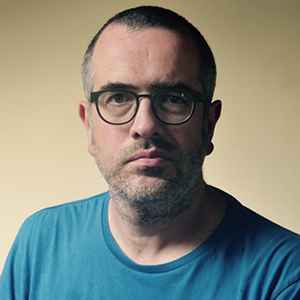
A beginner's guide to Open Data
Giles Dring
There are many benefits to publishing Open Data. Taking the first steps in doing so can prove challenging for organisations.
I will present some approaches which may help, lashed together into a loose method. This draws on Government Service Design approaches, and tries to encode some best practice. I’ll also share the result of my experiments in Open Data. I hope that these will inspire you.
The beginner in all this? Well, mainly me!
Giles is a freelance IT Architect with 15 years experience who recently left IBM. He has worked on some of IBM UK’s largest and most complex projects, with customers including central government and financial services organisations. His particular area of expertise is Systems Engineering and Architectural Methods, and has recent experience of attempting to fuse these techniques with Agile models (e.g. Government Service Design Manual).
Since going solo, Giles has developed an interest in Open Data.
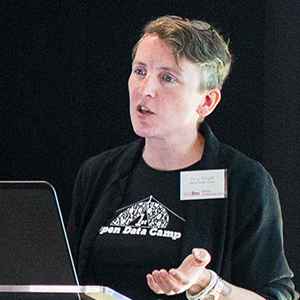
Making Data Useful
Lucy Knight
A talk and Q&A exploring how local government is approaching open data, and the technological and cultural barriers we need to overcome.
Lucy worked in opto-electronics and fine arts before moving into local government, spending the last 15 years at Devon County Council in analytics and policy roles. Alongside the day job Lucy is also co-founder of the ODI Devon Node and Devon Open Data Forum, and an illustrator and sketch note artist using physical and digital media.
Building on her experience of working at the extreme ends of the technical/creative spectrum, she regularly advocates for better communication between technical and non-technical groups and the importance of making technological advances both useful and accessible.
Photograph ©Tom Hampson of Visual Eye Creative. For more information visit www.visualeye.biz
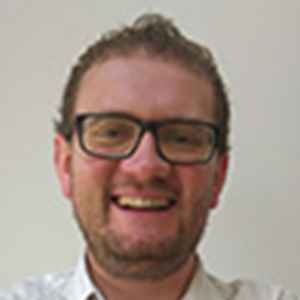
Data Visualisation and Better Public Services
Jamie Whyte
This talk will explore some of the ways in which data can be used to provide insight into better public services.
Jamie Whyte is Head of the Innovation and Intelligence Lab in Trafford. He is a huge fan of data and, through the Lab, committed to making sure data and intelligence is spread as widely as possible, so that it can be used to give everyone a better understanding of Trafford (and beyond...).
Jamie is always looking out for new opportunities to use data and technology creatively, and is interested in different work styles, such as agile. He is the co-lead on Open Data for LocalGov Digital and co-organiser of Open Data Camp.
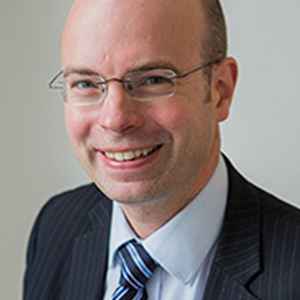
A Catapult for Progress in Digital Health.
Liam Sutton
West Yorkshire and the Leeds City Region is probably the best place in the UK for entrepreneurs to set-up and grow innovative businesses in the digital healthcare sector. We are home to some of the country’s key health and health technology organisations, including NHS England, vital established businesses and some of the best universities in the world.
Bradford is home to the Digital Health Enterprise Zone and hosts Digital Catapult Centre Yorkshire, two complementary initiatives designed to bring together major health and care providers, their problems, and innovators in a government-university-business network in order to get effective innovations to market at speed and scale.
In this talk, the University of Bradford’s head of knowledge transfer, Liam Sutton, will describe a vision of the future for technology-enabled care, some of the innovation directions for getting there, and how entrepreneurs and ambitious companies can get involved.
Liam leads the strategic development and operational management of knowledge exchange services at the University of Bradford since joining in July 2013. During 2014, he developed the partnership and bid with BT and Bradford Council that won University Enterprise Zone status for the £13M Digital Health Enterprise Zone and he led the establishment in Bradford of Digital Catapult Centre Yorkshire on behalf of Leeds City Region and York North Yorkshire Enterprise Partnerships.
Liam studied Chemistry at Oxford and Nottingham, before moving into postdoctoral research at Sheffield, Erlangen-Nuremburg and Leeds to work on organic materials and self-assembly chemistry. He joined chemical company Clariant as an R&D Chemist in 2004, then returned to Sheffield in 2006 to take up a business development role at the Polymer Centre. Polymer Centre Manager since 2008, he built the Sheffield Science Gateway from 2011 onwards, a team focused on supporting growth in collaborative research activity involving the Faculty of Science's 300+ scientists. While working in Sheffield, he commenced study for an MBA with the Open University and graduated in November 2014.
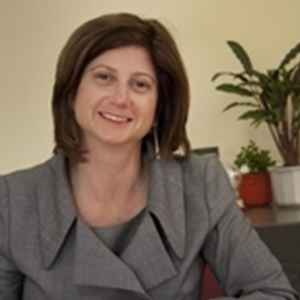
Welcome
Merran McRae, Chief Executive of Calderdale Council
Merran McRae sets the scene for the day, providing a brief introduction to some of the challenges faced by local authorities today and how the open data movement can help to address these.
Merran McRae has been the Chief Executive of Calderdale Council since October 2012. She has a professional background in housing management and, more recently, social care, holding positions as Chief Executive at a Housing ALMO and Director of Adult Social Care within a Local Authority. She has also led strategic services focussed on museums and cultural services, creative arts, and leisure services, as well as organisational development and change programmes.
Merran has a degree in History and a Masters of Business Administration, as well as professional qualifications in housing and training and development. She has held positions as a Non-Executive Director in an NHS acute trust, and was on the executive council of the national Association of Directors of Adult Social Care (ADASS). She has also been a school governor.


